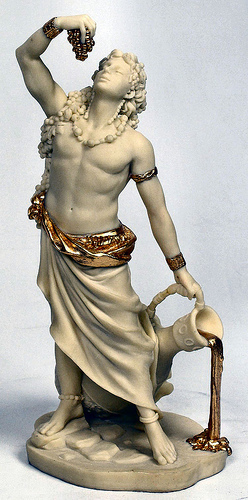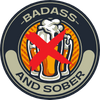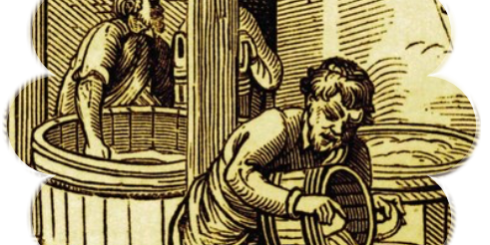“It doesn’t happen overnight. It’s a day-to-day thing. You gotta reprise every day.”
—Tim Allen – Badass & Sober since 1998
For thousands of years, fermented grain, fruit juice, and honey have been used to make alcohol. Archaeologists found the first example of an alcoholic beverage dating back to 7000 BC. They recovered it in early pottery from a Neolithic village in the Yellow River Valley in China. Our 9000-year-old ancestors made their booze from fermenting rice and fruit with honey as a sweetener. Even then, the distillers needed to hide the awful poisonous taste of alcohol with flavoring.
In India, an alcoholic beverage called Sura, distilled from rice, existed sometime between 3000 and 2000 B.C. But its consumption became such an issue that the Hindu religion added alcohol to their Five Great Sins, along with murder, theft, cruelty, and copulation with someone other than one’s spouse.
Indigenous Native Americans developed alcoholic beverages long before the Europeans arrived in the New World. They called it Chicha, a variety of fermented beverages created using corn, grapes, or apples. Hundreds of regional varieties emerged over the centuries from Bolivia to Venezuela, even a beer called Chicha de Jora. And now South America has one of the most prolific drinking problems in the world, with hundreds of thousands of deaths and injuries each year attributed to accessive alcohol consumption.

The Greeks believed in a god named Dionysus, the god of wine, winemaking, grape cultivation, and fertility. Interestingly enough, he was also the god of insanity, ritual madness, and ecstasy. Later the Romans renamed him Bacchus and the destructive frenzy he induces as bakkheia or alcohol madness because Bacchus himself possesses drunk people. Greek and Roman literature is full of warnings against the use of alcohol and the destruction it caused to their societies even back then.
Since as far back as history remembers, organized crime families have been involved in the booze business, from Chinese triads, Russian mobsters to American gangsters, the alcohol consumption business, along with its side effects, was monetized and exploited. As early as the 5th century, organized crime groups, legitimate businesses, and of course, governments discovered they could profit from the production and ultimately taxation of alcohol. The Dutch in the 16th century and the British parliament in the 18th century passed a law encouraging the use of grain for distilling spirits instead of food production. Cheap alcohol flooded the market and reached a peak in the mid-eighteenth century. In Britain alone, gin consumption reached 18 million gallons per person, and alcoholism became widespread. Some would argue that this is an example of the government using addiction as a method to grow in size or at the very least dumb down it’s public. After all, as alcoholics became a problem, the municipalities hired more police, judges, and jailers to manage their crimes. More agencies to deal with the effects of alcohol, including the mistakes and job loss, such as orphanages and workhouses. As we now understand, governments are famous for dealing with the result of an issue instead of the root cause and, in many instances, are why the problem exists in the first place.
How does an average individual survive in a society engineered to encourage drinking?


